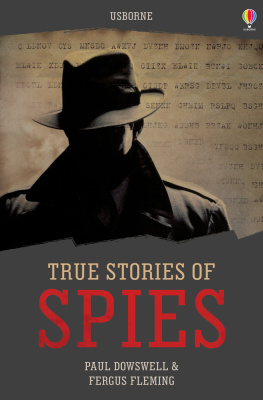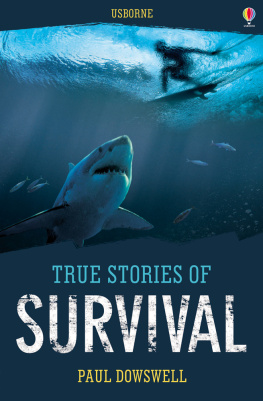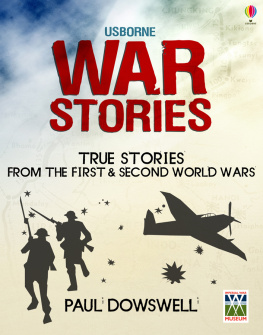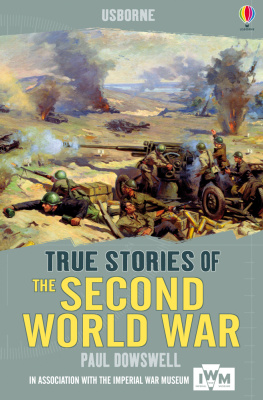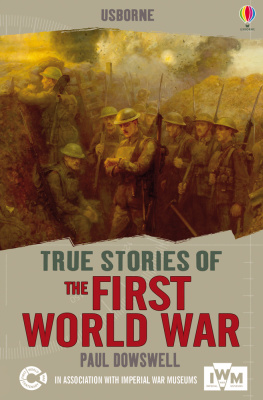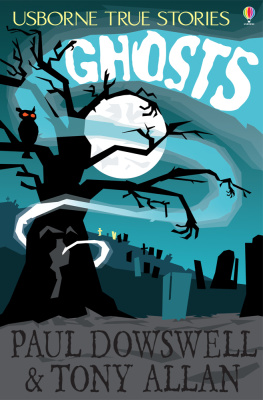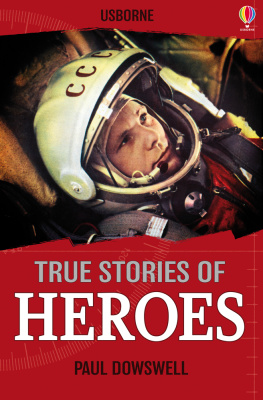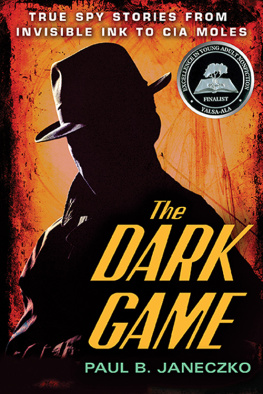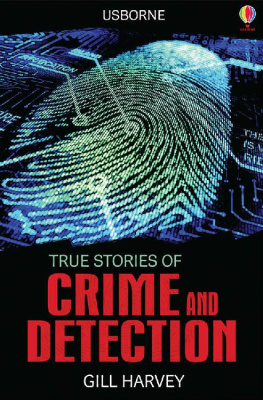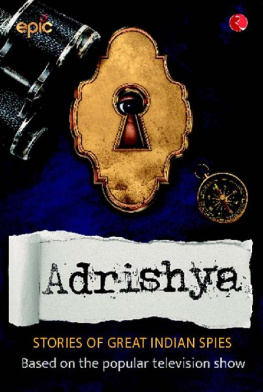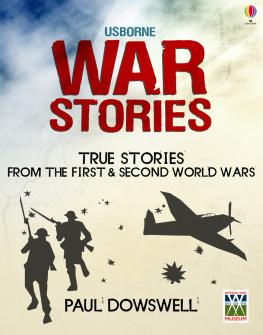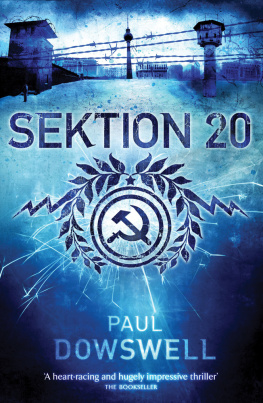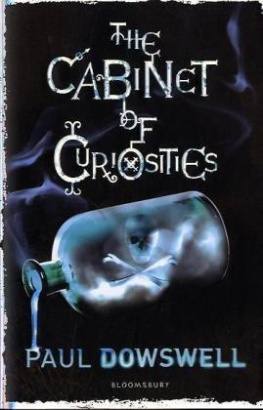Paul and Fleming Dowswell - Usborne True Stories of Spies
Here you can read online Paul and Fleming Dowswell - Usborne True Stories of Spies full text of the book (entire story) in english for free. Download pdf and epub, get meaning, cover and reviews about this ebook. publisher: Usborne Publishing Ltd, genre: Detective and thriller. Description of the work, (preface) as well as reviews are available. Best literature library LitArk.com created for fans of good reading and offers a wide selection of genres:
Romance novel
Science fiction
Adventure
Detective
Science
History
Home and family
Prose
Art
Politics
Computer
Non-fiction
Religion
Business
Children
Humor
Choose a favorite category and find really read worthwhile books. Enjoy immersion in the world of imagination, feel the emotions of the characters or learn something new for yourself, make an fascinating discovery.
- Book:Usborne True Stories of Spies
- Author:
- Publisher:Usborne Publishing Ltd
- Genre:
- Rating:4 / 5
- Favourites:Add to favourites
- Your mark:
- 80
- 1
- 2
- 3
- 4
- 5
Usborne True Stories of Spies: summary, description and annotation
We offer to read an annotation, description, summary or preface (depends on what the author of the book "Usborne True Stories of Spies" wrote himself). If you haven't found the necessary information about the book — write in the comments, we will try to find it.
Usborne True Stories of Spies — read online for free the complete book (whole text) full work
Below is the text of the book, divided by pages. System saving the place of the last page read, allows you to conveniently read the book "Usborne True Stories of Spies" online for free, without having to search again every time where you left off. Put a bookmark, and you can go to the page where you finished reading at any time.
Font size:
Interval:
Bookmark:

What are real spies like? Some, like beautiful Mata Hari, are every bit as glamorous as famous fictional agents such as James Bond. But, as youll see, spies often live shadowy double lives, risking imprisonment, torture and execution for a chance to change history.

Everyone liked Gordon Lonsdale the handsome Canadian seemed to have friends all over London. In the late 1950s his face was familiar in the capitals best clubs and restaurants, and his car, an expensive white model imported from America, made a splash in a country still recovering from the hardships of World War Two. He lived in a beautiful apartment block called The White House, just by Regents Park. Here, he gave extravagant parties and charmed a succession of girlfriends attracted to his dark good looks.
Behind the playboy image, though, Lonsdale was a hard-working businessman. He ran a company which leased jukeboxes, vending machines and car security equipment. His work took him all over the country. But there was yet another side to the playboy businessman one that would have astonished every single girlfriend, business associate and restaurant owner who thought they knew him well. His real name was Konon Trofimovich Molody and he was a Soviet spy.
Molody had led an extraordinary life. He was born in Russia in 1922, but he had been sent to live with an aunt in California when he was only seven years old. Nine years later, he spoke English like a native. Returning to Russia in 1938, he joined the Communist Youth Movement and fought heroically during World War Two. When the war ended Molody was recruited by the KGB, the Soviet Unions security service. He had a fanatical faith in his countrys communist ideology and a brilliant flair for languages two major qualifications that would make him an ideal spy.
By the age of thirty two, he had reached the rank of commander and had been sent on numerous foreign missions. In 1954, with Cold War hostility between the Soviets and Western enemies such as the United States and Britain approaching a peak, he was given his most important mission yet.
A new form of warfare had developed after World War Two submarines carrying nuclear missiles. Such vessels lurked unseen beneath the seas of the world. Impossible to track and destroy, they were capable of inflicting nuclear destruction on their nations enemies. Molody was to be sent undercover to Britain, to discover all he could about the Royal Navys nuclear submarines, which were among the most advanced in the world. To do this he would have to establish contacts with other Soviet spies, and find members of the British armed services or government who would be prepared to sell him such secret information.
An assignment like this asked a great deal of an agent. Molody was now thirty three. He would have to leave everything he possessed in the Soviet Union behind him, and go to live in a foreign land as a total stranger. He was given a new identity and nationality that of Gordon Lonsdale. There had been a Canadian named Gordon Lonsdale, but he had disappeared in Finland possibly murdered and his doctored passport, and past life history, was now in Molodys hands. He was sent to Canada in 1954. After a year living his life there as Lonsdale, he arrived in Britain in March 1955. He was to play out his new identity extraordinarily well.
Gordon Lonsdale had two very good friends out in Londons western suburb of Ruislip Peter and Helen Kroger. A quiet American couple in their 50s, they ran a business dealing in antique books. One time, friends on the street asked them to a dinner party. Helen arrived wearing a long black dress, and their hostess exclaimed: Why Helen, you look like a Russian spy! If she hadnt been laughing so much at her own little joke, she would have seen the Krogers exchange a terrified glance. Helen Kroger was indeed a Russian spy, and so was her husband. Their house at 45 Cranley Drive was a major threat to British security.
Under the kitchen floor was a cavity containing a high-frequency transmitter and a high-speed tape recorder for sending coded messages at more than 240 words a minute. An internal 23m (74ft) antenna stretched into and around the attic. In the sitting room was a radio which could receive signals from anywhere in the world. Beside it stood a typewriter, tape recorder and some headphones. The bathroom could be converted into a photographic darkroom, complete with a gadget for making and reading microdots a technology which could reduce large photographs to a size smaller than a pinhead.
There were surprises everywhere. A copy of the Bible in the sitting room concealed light-sensitive cellophane for making microdots. In the bedroom was a microscope for studying them. Rolls of microfilm were hidden in a hipflask. In the bathroom, a container of powder unscrewed to reveal a microdot reader rather like a small telescope. A large cigarette lighter on the table concealed a secret compartment full of coded messages.
The Krogers had led lives just as extraordinary as Molodys. Peter Kroger had been born Morris Cohen, of Russian-Jewish parents in New York. He met and married Helen at the University of Illinois. Her real name was Leona Petka. During the 1930s both had become communists, and Peter had gone to fight against the fascists in the Spanish Civil War. He had returned to the United States and worked for various Soviet trade organizations there before serving in the American army in World War Two.
After the war the couple began to spy for the Soviet Union, and helped to pass on American atomic bomb secrets to the Russians. They fled from America in 1950, suspecting they were about to be arrested, and surfaced again in Britain in 1954. This time they were known as the Krogers, having taken their identity and backgrounds from a New Zealand couple who had died earlier in the century.
Lonsdale was a frequent visitor to Cranley Drive he came to dinner at least one Saturday of every month. Of course that was not all he did. The Krogers were Lonsdales link with the Soviet Union. It was there, in their quiet suburban house, that the fruits of his spying work were transmitted to the KGB in Moscow.
Lonsdales best contact was a Royal Navy clerk at the top-secret Admiralty Underwater Weapons Establishment in Portland, Dorset. His name was Harry Houghton. He had access to a variety of classified (secret) material, and better still for Lonsdale, he had a shady past. In 1951 he had been posted to the British Embassy in Warsaw, Poland. There he had disgraced himself by keeping a mistress and dealing in black market goods. He was sent home with a severe reprimand. Yet despite his suspect character, he had been posted to Portland.
The British authorities were not the only ones keeping tabs on Harry Houghton in Warsaw. The Polish secret service had been watching him too. They told the KGB he was likely to be easily corruptible. The KGB passed on this titbit to Lonsdale, who wasted no time introducing himself.
Lonsdale told Houghton he was Commander Alex Johnson from the American Embassy. As they chatted away, he realized Houghton was just the man he needed. He was willing to do almost anything for money. It was easy to trick him into becoming a traitor. Lonsdale said the Americans needed certain information from him. He need not worry about the Official Secrets Act a document guaranteeing confidentiality that all armed forces personnel were required to sign after all, werent Britain and the United States on the same side?
Font size:
Interval:
Bookmark:
Similar books «Usborne True Stories of Spies»
Look at similar books to Usborne True Stories of Spies. We have selected literature similar in name and meaning in the hope of providing readers with more options to find new, interesting, not yet read works.
Discussion, reviews of the book Usborne True Stories of Spies and just readers' own opinions. Leave your comments, write what you think about the work, its meaning or the main characters. Specify what exactly you liked and what you didn't like, and why you think so.

